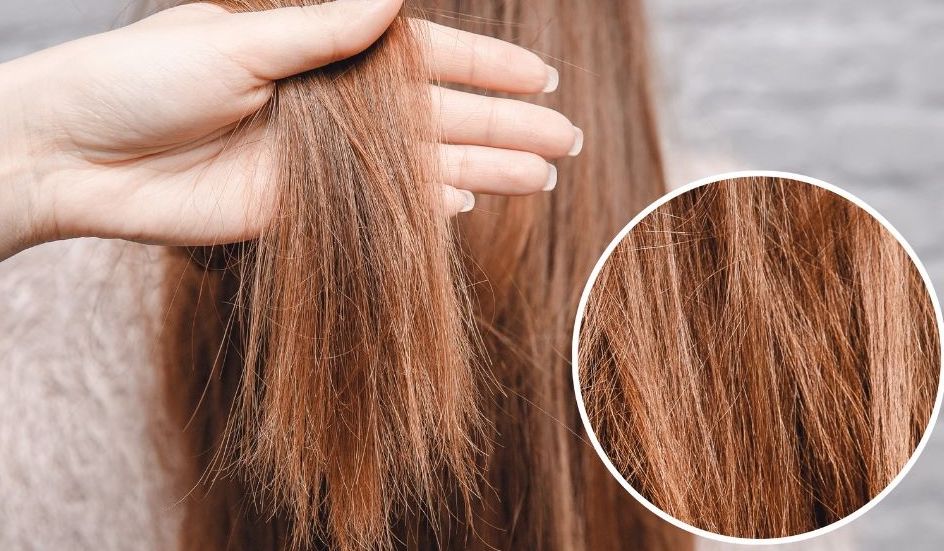New Hair Growth Or Breakage: A Comprehensive Guide To Understanding And Managing Your Hair Health
Hair growth and breakage are two critical factors that influence the health and appearance of your hair. Whether you're experiencing slow hair growth or dealing with excessive breakage, understanding the underlying causes and solutions is essential. This article will delve deep into the science behind hair growth, breakage, and how to manage both effectively.
Millions of people around the world are concerned about their hair health, and for good reason. Hair is not just a part of our appearance; it is also an indicator of our overall well-being. From genetics to lifestyle choices, various factors contribute to hair growth and breakage. By learning more about these processes, you can take proactive steps to improve your hair health.
In this article, we'll explore everything you need to know about new hair growth and breakage, including expert tips, scientific insights, and actionable advice. Whether you're looking to accelerate hair growth or prevent breakage, this guide will provide the answers you need.
Read also:Why Sniffies Not Working On Data A Comprehensive Guide
Table of Contents
- Understanding Hair Growth
- Causes of Hair Breakage
- The Hair Growth Cycle
- Genetic Factors in Hair Growth
- Lifestyle Impact on Hair Health
- Nutrition for Hair Growth and Strength
- Effective Haircare Routines
- Treatment Options for Hair Breakage
- Preventing Hair Breakage
- Conclusion
Understanding Hair Growth
Hair growth is a complex biological process that involves several stages and factors. To better understand new hair growth or breakage, it's important to first explore how hair grows and what influences its development.
How Hair Growth Works
Hair growth occurs in the hair follicles, which are located beneath the skin. Each strand of hair goes through three main phases: anagen (growth phase), catagen (transition phase), and telogen (resting phase). During the anagen phase, hair grows actively, while the telogen phase marks the end of the cycle before the hair eventually sheds.
Factors Influencing Hair Growth
- Genetics: Your DNA plays a significant role in determining the rate of hair growth and thickness.
- Nutrition: A balanced diet rich in vitamins and minerals supports healthy hair growth.
- Hormones: Hormonal changes can affect the hair growth cycle, leading to slower growth or increased shedding.
- Stress: Chronic stress can disrupt the hair growth cycle, contributing to hair loss or breakage.
Causes of Hair Breakage
Hair breakage is a common concern for many individuals, and it can be caused by a variety of internal and external factors. Understanding the root causes of breakage is key to addressing the issue effectively.
External Causes of Hair Breakage
External factors such as heat styling, chemical treatments, and environmental exposure can weaken hair strands, making them more prone to breakage. Here are some common culprits:
- Excessive heat from blow dryers, flat irons, and curling wands.
- Chemical treatments like hair coloring, perming, and relaxing.
- Overuse of harsh shampoos and styling products.
Internal Causes of Hair Breakage
Internal factors such as nutritional deficiencies, medical conditions, and hormonal imbalances can also contribute to hair breakage. For example, a lack of essential nutrients like biotin, iron, and zinc can weaken hair strands and lead to increased breakage.
The Hair Growth Cycle
The hair growth cycle is a natural process that determines the length and thickness of your hair. By understanding the different stages of the cycle, you can better manage your hair health and minimize breakage.
Read also:Annamaria Sieklucka The Inspiring Journey Of A Resilient Woman
During the anagen phase, which lasts several years, hair grows continuously. The catagen phase is a short transitional period where hair growth slows down, and the telogen phase marks the resting stage before shedding occurs. On average, 85-90% of your hair is in the anagen phase at any given time.
Genetic Factors in Hair Growth
Genetics play a crucial role in determining your hair type, growth rate, and susceptibility to breakage. If you have a family history of slow hair growth or excessive breakage, you may be more prone to these issues. However, with the right care and treatment, you can still achieve healthy, strong hair.
How Genetics Affect Hair Strength
Genetic factors can influence the strength and resilience of your hair strands. For example, individuals with fine or thin hair may experience more breakage due to weaker hair shafts. Understanding your genetic predispositions can help you tailor your haircare routine to address specific needs.
Lifestyle Impact on Hair Health
Your lifestyle choices can significantly impact your hair health, affecting both growth and breakage. Stress, poor diet, and lack of sleep can all contribute to hair problems. On the other hand, adopting healthy habits can promote stronger, healthier hair.
Stress and Its Effects on Hair
Chronic stress can disrupt the hair growth cycle, leading to conditions like telogen effluvium, where a large number of hair follicles enter the shedding phase simultaneously. Managing stress through relaxation techniques, exercise, and mindfulness can help maintain a healthy hair cycle.
Nutrition for Hair Growth and Strength
Proper nutrition is essential for optimal hair health. A diet rich in vitamins, minerals, and proteins can support new hair growth and prevent breakage. Key nutrients for hair include:
- Biotin: Promotes hair growth and strengthens hair strands.
- Iron: Prevents anemia, which can lead to hair loss.
- Zinc: Supports the hair growth and repair cycle.
- Omega-3 Fatty Acids: Nourishes the scalp and promotes healthy hair.
Effective Haircare Routines
Establishing a consistent haircare routine is vital for maintaining healthy hair. This includes using gentle, sulfate-free shampoos, conditioning regularly, and protecting your hair from environmental damage.
Tips for Preventing Hair Breakage
Here are some practical tips to minimize hair breakage:
- Avoid overwashing your hair, as it can strip natural oils.
- Use wide-tooth combs to detangle wet hair gently.
- Protect your hair from sun exposure with hats or scarves.
Treatment Options for Hair Breakage
If you're struggling with excessive hair breakage, there are several treatment options available. These range from over-the-counter products to professional treatments like keratin therapy and low-level laser therapy (LLLT).
Professional Treatments for Hair Health
Professional treatments can provide targeted solutions for hair breakage. For instance, keratin treatments smooth the hair cuticle, reducing breakage and frizz. LLLT stimulates hair follicles, promoting healthier growth.
Preventing Hair Breakage
Prevention is key when it comes to managing hair breakage. By adopting preventive measures, you can maintain strong, healthy hair and minimize damage.
Regular trims, avoiding excessive heat styling, and using protective styles are effective strategies for preventing breakage. Additionally, staying hydrated and maintaining a balanced diet can support overall hair health.
Conclusion
In conclusion, understanding new hair growth or breakage involves exploring the underlying causes and implementing effective solutions. By addressing factors such as genetics, lifestyle, and nutrition, you can promote healthier hair and minimize breakage.
We encourage you to take action by incorporating the tips and strategies outlined in this article. Share your thoughts and experiences in the comments below, and don't hesitate to explore other resources on our website for more information on hair health.
For further reading, consider exploring reputable sources such as the American Academy of Dermatology and the National Institutes of Health for additional insights into hair growth and breakage.
Gooning: Exploring The Phenomenon, Techniques, And Impact In Modern Gaming
DTI Rock And Roll: The Ultimate Guide To Discovering The Thrills Of Digital Transformation In Rock Music
Understanding The Fundamentals Of HTTP: A Comprehensive Guide

Hair Breakage & Growth BLESS Hair Beauty BLESS

Baby Hair Vs. Hair Breakage How To Tell The Difference

How To Differentiate Between Breakage And New Growth Hair